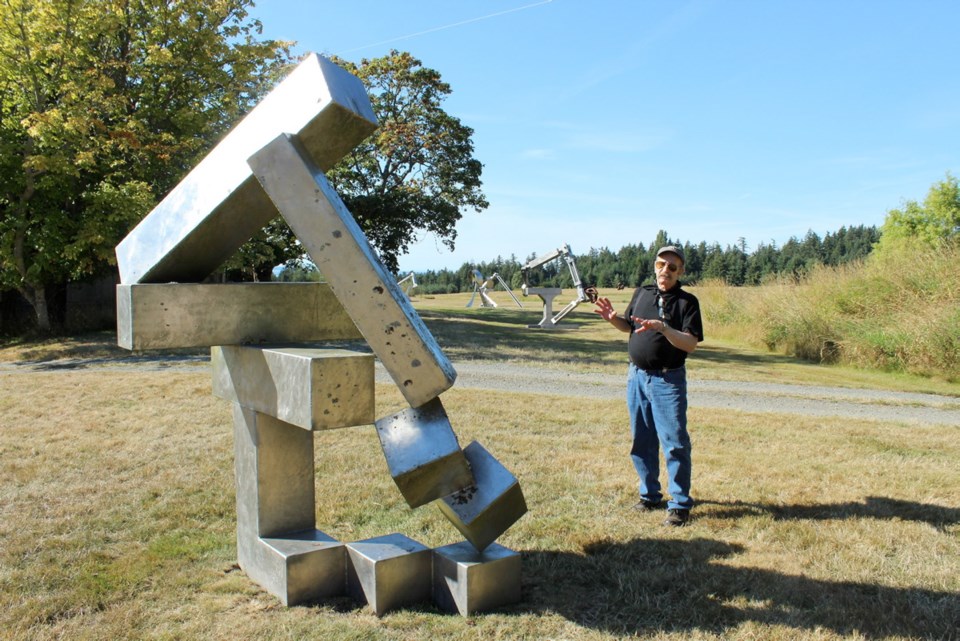A renowned B.C. artist whose life’s work is a giant public sculpture park on Hornby Island has died.
Jeffrey Rubinoff died Tuesday, said Susan Lewis, the University of Victoria’s dean of fine arts.
Douglas and McIntyre, which published The Art of Jeffrey Rubinoff last year, described the 71-year-old as “one of the great sculptors in steel of the second half of the 20th century”.
Rubinoff exhibited in the United States and Canada alongside such notable artists as Anthony Carol, Mark di Suvero and George Rickey.
Despite success, he ultimately withdrew from the art world to focus on the creation of the Jeffrey Rubinoff Sculpture Park on a 200-acre farm on Hornby Island. It contains more than 100 steel artworks made over four decades.
The sculpture park will continue to be open to the public each June and July thanks to an endowment left by Rubinoff, said Karun Koernig, the park’s manager/curator.
Last September, Rubinoff provided a major gift enabling UVic to establish the Jeffrey Rubinoff Scholar in Art as a Source of Knowledge Endowment. It is one of largest endowment awards ever from a single donor to the UVic fine arts department. Rubinoff insisted the size of his gift be kept confidential.
Lewis said Rubinoff was a “wonderful friend” to the university. She recalled visiting his sculpture park last year on a sunny fall day.
“The particular impression I had was that the light was part of his art. I have a feeling on any given day when people visited the park, it would be a unique experience,” she said.
“He was strikingly personable for someone who was both an artist and an intellectual … He was very easy to talk to and fully engaged. He had such a wide range of interests.”
The Art of Jeffrey Rubinoff, a collection of essays edited by James Fox, says Rubinoff was the son of a businessman who built more than 60 Holiday Inns around the world. At his father’s urging, Rubinoff designed a shopping mall — which included some of his steel sculptures — in his hometown of London, Ont.
The project was a success, but Rubinoff was uninterested in a career inbuilding development (in a recent Globe and Mail interview, he said such a path would have been “soul-destroying”). Instead, he studied fine art in the United States, taking a master of fine arts degree. Rubinoff’s sculptures were subsequently exhibited at galleries in Toronto, Chicago and New York City.
In 1973, he bought his Hornby Island farm. The goal at that point wasn’t to create a sculpture park. However, Rubinoff, fascinated by the relationship between art and nature, began displaying more and more of his artworks on his property. He eventually stopped selling sculptures altogether, even buying them back so they could be displayed in the Jeffrey Rubinoff Sculpture Park.
The park, which is open for free visits and tours on set days and times (go to rubinoffsculpturepark.org for details), is host to concerts and an annual Company of Ideas forum, to which scholars, artists, educators and students are invited. This year’s forum is set for June, and the theme is how artists in the 20th century interacted with other disciplines — from mathematical theories in geometric abstraction to the role of philosophy and sociology in conceptual work.
